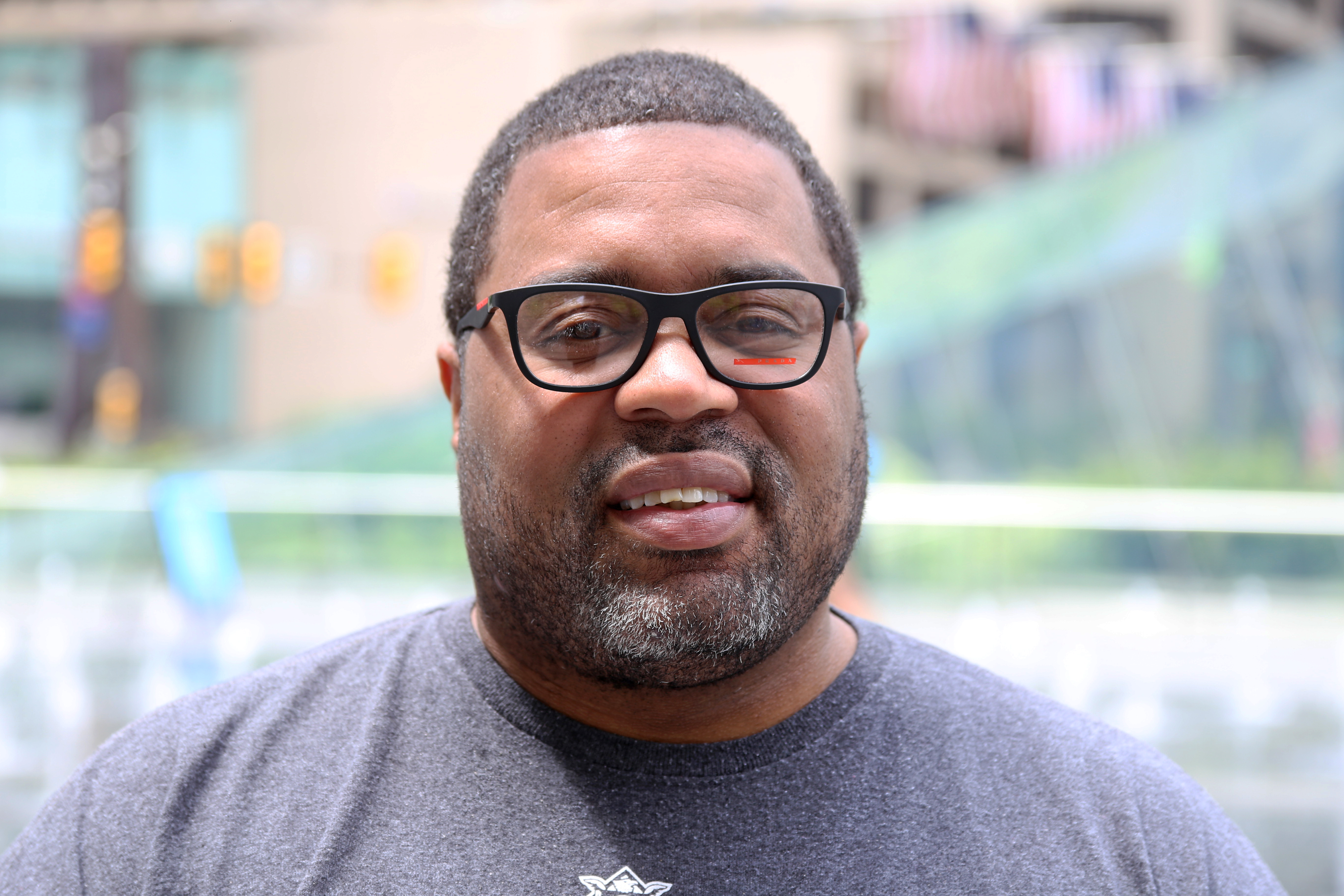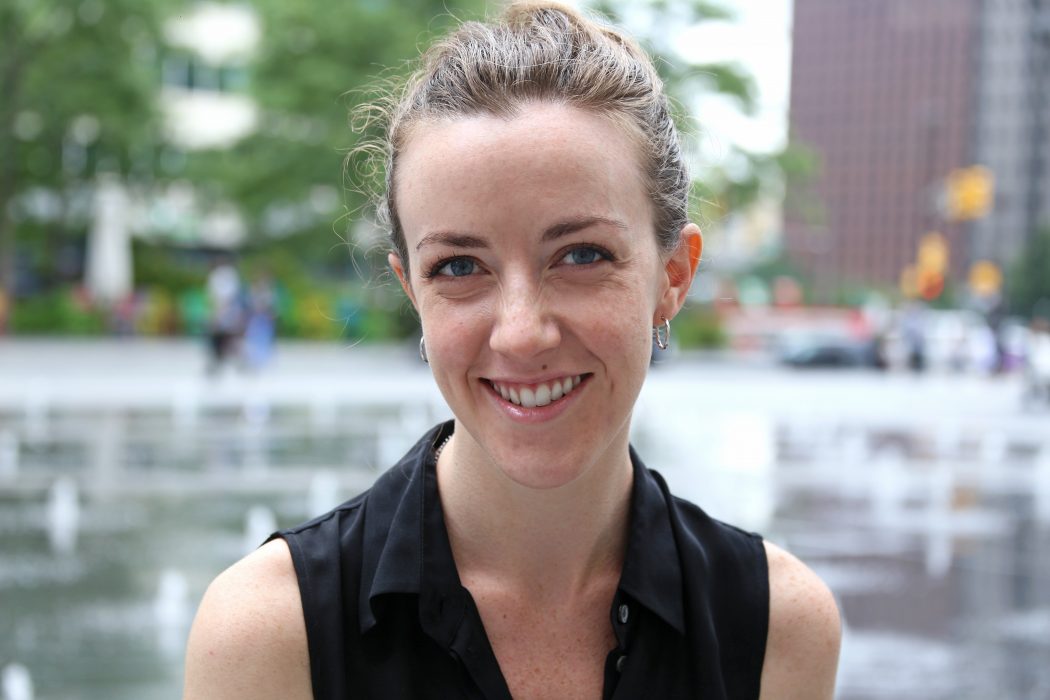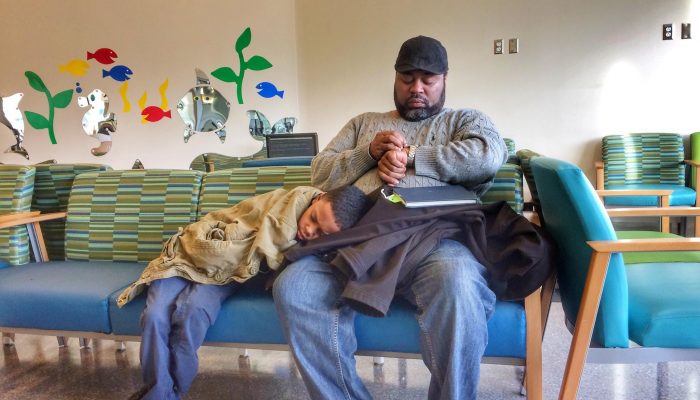More than 200,000 Philadelphians benefit from the Affordable Care Act — more than 160,000 through the Medicaid expansion and about 60,000 through the ACA’s marketplace.
If the ACA is repealed, these people could all lose their health insurance and have no way to pay for medical care.
They’re not the only ones who’ll be affected, either. If Congress repeals the ACA, most adults and children in Philadelphia who have private healthcare coverage will lose protections the ACA provides. Protection like no-cost preventive care, coverage of preexisting conditions, and equal coverage of behavioral health issues like addiction.
The stakes are high for all of us.
We asked Philadelphians to share their stories. Here’s what a few of you had to say.
Hassan Freeman

“My youngest son was born with a rare liver disease known as biliary atresia. It’s a sickness where the liver progressively gets worse, ultimately leaving the person in need of a liver transplant. Were it not for the ACA preventing insurance companies from discriminating against those with preexisting conditions, our child would assuredly not be receiving the treatments. These treatments allow him to enjoy the life that all children deserve: growing up and being allowed to pursue what makes him happy.”
Audrey Ross
“Right after the election, my husband and I were sitting in a pediatric ER trying to wrap our heads around what he had just heard. A doctor told us our three-and-a-half-month-old baby Jacob’s upper left lung was overinflated, flattening his diaphragm and shifting his heart to the middle of his tiny body. He was placed on oxygen just so he could breathe. During that week, I didn’t care about the election result. I just wanted my little boy to live. Later, Jacob was diagnosed with an extremely rare lung disease and underwent surgery. Now, almost eight months after having a home apnea monitor on for months and another procedure, Jake is moving around like a normal 11-month-old. He still has health challenges we are addressing and sees a gastroenterologist, cardiologist, pulmonologist, and a neurologist — and I know I’m probably forgetting another specialist somewhere in there. He is not even a year old and he stands to lose his Medicaid coverage under some proposals moving through Congress. We don’t know what his future holds. This is the most terrifying part. Lives are on the line.”
Fae Ehsan

“My parents moved to this country from India in 1995 to pursue opportunity, so at the age of five I was a young immigrant in America. While my dad was going to school, he also worked at a grocery store to make ends meet. He didn’t get health benefits from his job, so no one in my family had health insurance. Getting it privately would’ve been more expensive than my dad could earn stocking shelves. Unfortunately, I was a pretty sick kid growing up, always getting colds and coughs. One summer, I couldn’t stop coughing and had a steadily rising fever. Since we didn’t have insurance, we didn’t have a primary care doctor, so my mom walked me to an urgent care center. We had to walk because we didn’t have a car. The urgent care center refused to see me without $200 upfront; my mom only had $190. She offered them her wedding ring and the other valuable jewelry she was wearing in exchange for medical care. They refused. Eventually, a relative came by with the extra $10 — after I had already fainted from the fever in the waiting room while my mother was haggling with the receptionist. Today, my dad works a good job and everyone in our family has health insurance; eventually, I got a job with great health insurance, too. I can see a doctor whenever I want. I want that for all people. I just think of those families starting out like my parents did. What will they do? No mother should have to haggle with healthcare providers to get care for herself or her child. Everyone should have access to care.”
Jesse Telles, Medical Case Manager Supervisor
“The statistics we have on people who are newly covered thanks to the Affordable Care Act’s Medicaid expansion show what a difference the ACA has made. Being able to provide health insurance for people who previously couldn’t access healthcare but now can through Medicaid has led to better connection to care and earlier detection and diagnosis of many emerging health issues. Since the ACA, many are now able to attend needed specialist visits and access the care they need and deserve, too. Many patients approved for Medicaid under the ACA’s expansion have also been able to obtain dental care, which is critically needed and much harder to obtain affordably. With dental coverage, patients do not need to wait until a painful dental emergency occurs to obtain treatment. Prevention saves us so much.”
Adrianne Gunter
“I suddenly went from being a healthy, happy college senior to being tired all the time. I couldn’t understand things. At first, I thought it was stress. Then, I lost vision in my left eye. That’s when everything came to a screeching halt: I was eventually diagnosed with multiple sclerosis (MS). Almost instantly, I became unemployed and unemployable. MS is an autoimmune disease that attacks the central nervous system; scars called lesions form in the brain and spinal column. These lesions interfere with nerve receptors, making everything difficult. Right now, at 32 years old, I walk with a cane, but it’s already hard to lift my legs. My hands don’t grip the way they used to, and I need help getting the lids off of jars. When I eat, I have difficulty swallowing. There’s no cure for MS. It’s one of those preexisting, chronic conditions. For two years, I applied for health insurance and was denied four times — until the Affordable Care Act. It’s only after Governor Tom Wolf signed on to the ACA’s Medicaid expansion that I was finally able to get insurance. While there’s no cure for MS, there are treatments that can help. My first treatment was covered under the Medicaid I received; without coverage, treatments for me would cost thousands per month. I can’t afford that. Right now, I pay a copay of $3 for my treatment thanks to Medicaid, which also covers my doctor’s appointments and the MRIs that track the progression of the disease. It also gives me the peace of mind that, if something unexpected happens like a fall or broken bone, it will be covered and my mother won’t be buried in endless medical bills. I didn’t ask for this disease. I didn’t want it. If I could reach inside myself and rip MS out of me, I would. But I can’t. If Medicaid goes away and the Affordable Care Act is repealed, it’s the same as punishing people like me for being sick.”
Katherine Miller

“I had uterine surgery right before I became too old to stay on my parents’ insurance. My mother’s plan covered the surgery but a few weeks later after I turned 26, her insurance company dropped me. At the time, I couldn’t find full-time work, my part-time job didn’t offer health insurance, and I couldn’t afford any of the plans offered on the healthcare marketplace. I eventually got coverage through Medicaid, only because of the ACA’s Medicaid expansion here in Pennsylvania. After my operations, I needed regular follow-up care, but when I called the doctor I had been with for years, they said they didn’t accept Medicaid patients. This was incredibly upsetting; I had delayed my follow-up care while I obtained healthcare so I could go to the doctor I had been with for years. It was clear that my relationship with them was purely financial — not a patient-centered one. So, I went to Planned Parenthood. They saw me regardless of what insurance I had — or didn’t have. I got an appointment right away and continued going there for as long as I was on Medicaid. The whole time, I received top-quality, compassionate care. I was never treated differently there at Planned Parenthood because of my health insurance card. I don’t know what I would’ve done without PP or without Medicaid. I was able to get the care I needed — care that enabled me to continue going to work and showing up for life. That care helped make it possible for me to get promoted to a full-time position and become eligible for my employer’s health insurance, which meant I no longer needed Medicaid.”
Corrie Tice, Social Services Manager, Mary Howard Health Center
“I’ve met with countless individuals benefiting from the Medicaid expansion in Pennsylvania. A lot of our patients are older adults and chronically homeless, often due to a combination of mental health and physical conditions, which a lack of housing exacerbates. Though not determined ‘disabled’ by Social Security, these individuals are unable to find or maintain gainful employment. Even when they do, it’s usually minimum wage work that usually doesn’t offer health benefits or where health benefits are too costly. These are the people — those on the margins of government benefits and society — that benefit tremendously from the ACA. They’re able to get their healthcare needs met through the Medicaid expansion, access that then prevents even costlier situations. Before the Medicaid expansion, these were some of the most frequent users of emergency rooms. They relied on ERs for all their healthcare needs and would often only seek care after conditions became dire. Repealing the ACA or cutting Medicaid will bring these individual back into the ER for routine care and mental or behavioral health issues. Not only does cutting Medicaid put their lives at risk but it also overwhelmingly burdens our hospital systems that will again find themselves functioning as primary urgent care centers — which increases healthcare expenses across the board.”

